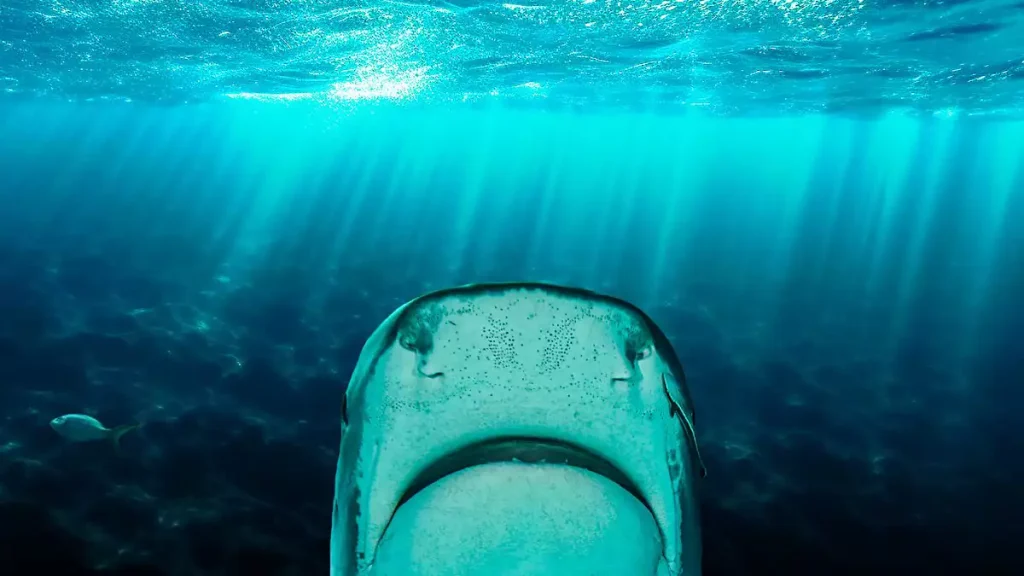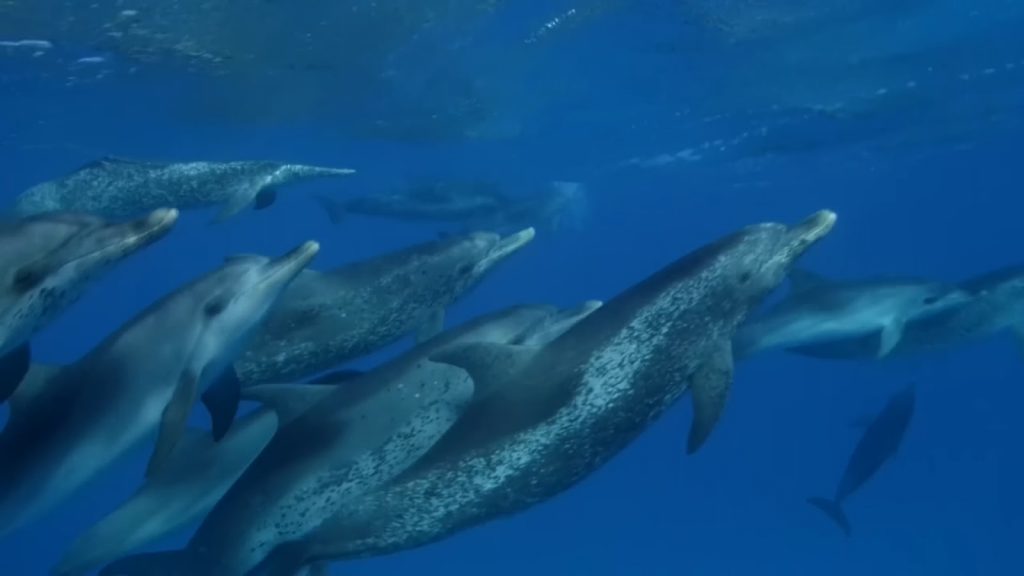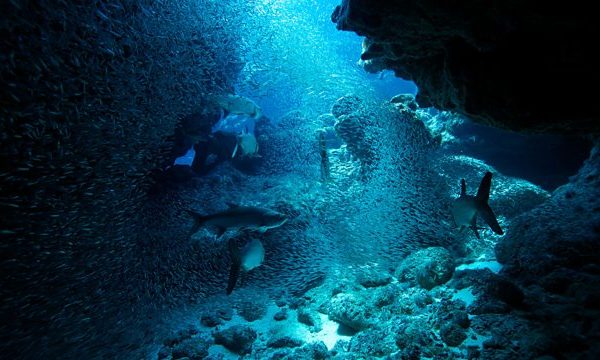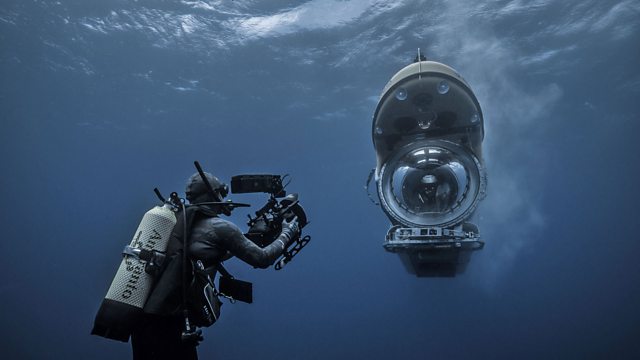Why Sharks Attack – In a tragic incident that unfolded on June 8, 2023, a Russian man, aged 23, fell victim to a shark attack while swimming near the shore of Hurghada, Egypt’s renowned Red Sea vacation resort. The shocking event witnessed horrified onlookers as the man succumbed to his severe injuries before any assistance could reach him. The attack, captured on videos that swiftly spread across social media platforms, marks a distressing occurrence in the Red Sea, following the fatal shark-related incidents that claimed the lives of two women within a span of two days on the same coastline just a year ago.
The emergence of such a series of fatal encounters in the Red Sea raises perplexing questions about what could have driven these sharks into the shallows of luxurious holiday destinations, steering them away from their natural hunting grounds in the vast open ocean. Is it possible that the mounting pressures imposed by human activities such as fishing, tourism, and the consequences of man-made climate change are prompting alterations in the behaviors and lifestyles of these apex predators?
Delving into the depths of investigative journalism and scientific inquiry, this captivating documentary aims to unravel the enigma behind not only the Red Sea attacks but also the unusual shark incidents that have recently unfolded in various locations worldwide, including Sydney and Florida’s coastal waters.
With the aid of striking computer-generated imagery (CGI), viewers are offered an up-close exploration of the formidable physiology and behaviors exhibited by these captivating creatures. The documentary uncovers the intricate workings of their powerful jaws, while shedding light on the remarkable energy reserves stored within their colossal livers, enabling them to endure prolonged periods between meals.
Professor Gavin Naylor, an esteemed expert from the University of Florida, lends his expertise to illuminate the evolution of sharks, with a particular focus on Florida and Australia—two regions known as global hotspots for shark attacks. Joining him is Dr. Dean Grubbs, an associate from Florida State University, who actively engages in hands-on research, capturing sharks along Florida’s Gulf Coast to gain valuable insights into their movements and population dynamics.
The narrative takes an emotionally gripping turn as it introduces 18-year-old Addison Bethea, a survivor of a harrowing shark attack that took place in 2022 on Big Grassy Island, Florida. While she and her firefighter brother, Rhett, were combing shallow waters in search of scallops, a shark suddenly seized Addison, dragging her beneath the surface. With incredible bravery, Rhett fought off the predator, ultimately saving his sister’s life. However, the severity of Addison’s injuries necessitated the amputation of her leg. This incident marks the first recorded shark bite in those waters, piquing the interest of experts eager to uncover the underlying causes.
Meanwhile, in Sydney, Dr. Laura Ryan from Macquarie University conducts groundbreaking research on whether great white sharks may be mistakenly targeting swimmers and surfers, confusing them with their preferred prey, seals.
Further contributing to the narrative is Dr. Lucy Hawkes, a distinguished marine ecologist from the University of Exeter, who sheds light on the alarming decline of shark populations in numerousregions. Dr. Hawkes, known for being the first scientist to successfully capture and tag a silvertip shark in the Red Sea, offers a sobering depiction of the ecological challenges faced by these majestic creatures.
Through a captivating blend of human stories, scientific exploration, and captivating visuals, this documentary endeavors to unravel the intricate web connecting human activities, climate change, and the complex lives of sharks, leaving viewers with a profound understanding of these captivating marine creatures and the urgent need for conservation efforts.
Why Sharks Attack – Understanding Why Sharks Attack Humans
Few animals spark more fascination and fear than sharks. As powerful apex ocean predators, sharks face deeply ingrained stereotypes of being ruthless man-eaters. But do sharks actually hunt humans? What drives these mysterious creatures to occasionally bite people? This article dives into the facts behind the myths on shark attacks.
Shark Attack Statistics Paint a Complex Picture
According to the International Shark Attack File, around 150 shark attacks on humans occur globally each year, with 4-5 being fatal. But considering billions of people swim in the ocean annually, your individual odds of getting attacked are infinitesimally small.
However, certain activities like surfing, spearfishing, and long-distance ocean swimming do increase the risk. Areas with dense shark populations like Australia, South Africa, and Florida also see more frequent bites. But millions still enjoy these shark-populated waters every year without incident.
So while overall shark attacks are rare events, the statistics reveal complex patterns based on human behaviors and locations.
What Motivates Sharks to Attack Humans?
Shark experts point to several possible reasons these ocean predators occasionally bite humans:
Mistaken Identity
Sharks utilize powerful senses like vision, smell, hearing, and electroreception to hunt prey like fish, seals, and sea turtles. However, these adaptations aren’t perfect. Sharks can and do confuse humans for their normal food sources, especially in murky waters where visibility is limited. From below, a surfer on a board may look remarkably seal-like. This mistaken identity accounts for many bump-and-bite attacks.
Investigatory Bites
Sharks are highly curious creatures, making investigatory bites on unfamiliar objects to better understand them. Like a dog sniffing a new toy, sharks may cautiously nip at humans to determine what we are, not to eat us. While not acts of hunting, these investigative bites can still injure.
Self-Defense
When provoked or perceiving a threat, sharks may bite defensively as a reflex reaction. If a human pulls a shark’s tail or tries spearing the animal, the shark may feel endangered and lash out instinctively. Even sharks struggling on fishing lines or baited hooks can enter an agitated state and bite whoever approaches them.
Hunger and Feeding Frenzies
Sharks that are extremely hungry or excited by the smell of ample prey may attack more indiscriminately. This helps explains periodic spikes in attacks around seal colonies, fishing boats dumping bloody carcasses overboard, or areas with chumming to attract sharks. A feeding frenzy can override a shark’s normal caution around unfamiliar objects like humans.
Territorial Behavior
Some shark species vigorously defend feeding and breeding territories. Swimming into one of these zones unknowingly could trigger an aggressive bite. While not all shark territories have clear boundaries, certain times of year like mating seasons tend to make them more aggressive toward intruders.
Mitigating Your Shark Attack Risk
While shark bites are rare, there are ways to reduce the odds of ever getting attacked:
– Avoid areas like seal colonies, steep drop-offs, river mouths, and chumming sites known to attract sharks.
– Be extra vigilant in murky waters, at dawn/dusk, and in regions with high shark populations like Australia and South Africa.
– Don’t wear reflective jewelry or swim near schools of fish that can mimic shark prey.
– Avoid excessive splashing and swimming with open wounds or bleeding that can draw sharks from miles away.
– Heed beach warnings if sharks are spotted in the vicinity and exit the water quickly but calmly.
– Give sharks ample space when diving and don’t provoke or harass them intentionally or unintentionally.
– Consider a shark deterrent device with electrical or magnetic pulses that ward off shark advances.
Coexisting Safely with Sharks
Shark attacks stir primal fears in us, but it’s vital to remember sharks are not malicious hunters of humans. They are apex ocean predators acting on senses, instincts, and motivations we still don’t fully grasp. Very few shark species view people as desirable prey.
Furthermore, as shark populations decline globally, these animals are vital for healthy ocean ecosystems. By taking precautions, respecting shark behavior, and supporting shark conservation, we can safely enjoy the water while ensuring the survival of these captivating creatures.
Key Takeaways on Shark Attacks
– While shark attacks on people are extremely rare, statistics reveal patterns based on location, activities, shark behavior, and other factors.
– Motivations for bites include mistaken identity, curiosity, hunger, self-defense, and territorial instincts – not deliberate targeting of humans.
– Certain conditions like murky water and activities like surfing do increase the risk of bites in shark-populated waters.
– By avoiding high-risk areas and understanding shark behavior, you can greatly reduce the very low odds of getting bitten.
– Although scary, it’s critical to remember sharks are not villainous killers but rather apex predators we must conserve.
– Approaching shark encounters with caution, respect, and knowledge promotes human safety and shark welfare.
The next time you see a dorsal fin slicing through the ocean, remember that sharks are more frightened of us than we need be of them. Together, through education and conservation, we can share the waters safely and preserve these captivating creatures for future generations.




